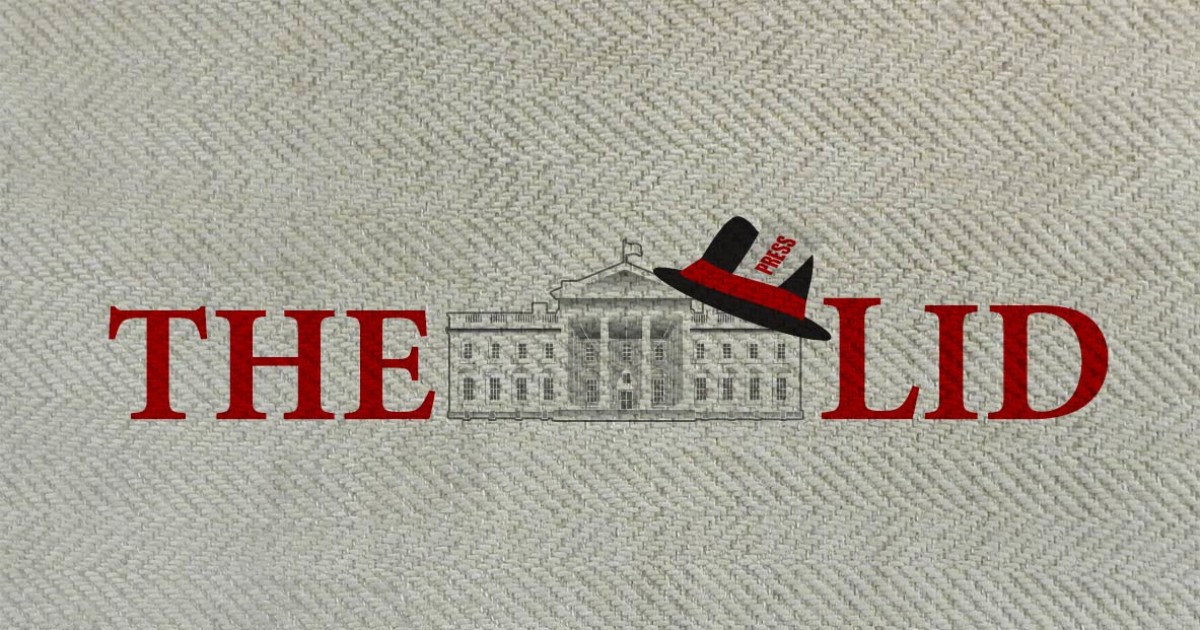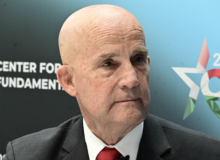According to the Atlantic Jimmy Carter is making one final push to end hatred before he dies:
Carter also said he hopes the New Baptist Covenant can “understand the motivations” of rising political movements like Black Lives Matter, which is largely led by people in their 20s and 30s. But generational hand-offs aren’t always simple. When speaking about Black Lives Matter, for example, Carter remarked, “The obvious response to that is all lives matter”—a phrase often used as a retort to outrage over racial discrimination and police violence. At most, it seemed like a generational faux pas—“white people need to understand the special discrimination that still exists against our black neighbors,” Carter went on to say—but the moment seems symbolic of the larger disconnect between older religious leaders and their younger peers.
While fighting for equality and human rights is a noble goal, what the Atlantic ignores is that as president Jimmy Carter was responsible for the creation of three of the most repressive, anti-human rights regimes in recent history, Mugabe in Zimbabwe, the Islamist Iran, and the Taliban in Afghanistan.
The oppressive reign of Robert Mugabe in Zimbabwe a Jimmy Carter Production.
In 1978 Ian Smith, the prime minister of white-ruled Rhodesia reached an agreement with the moderate black leaders for a transition government. Under this plan, termed the “internal settlement,” whites, who represented about 4% of the population, would be reserved 28 out of 100 parliamentary seats as well as control over certain government ministries. It was still grossly unfair but it was certainly a strong step toward change.
In April of 1979, the first fully democratic election in Zimbabwe history’s occurred. Of the eligible black voters, 64% participated, braving the threat of terrorist attacks by Mugabe’s Zimbabwe African National Union-Patriotic Front party, which managed to kill 10 people. Prior to the election, Mr. Mugabe had issued a death list with 50 individuals he named as “traitors, fellow-travelers, and puppets of the Ian Smith regime, opportunistic running-dogs and other capitalist vultures.” Nevertheless, Bishop Abel Muzorewa of the United Methodist Church emerged victorious and became prime minister of Zimbabwe-Rhodesia, as the new country was called.
But Jimmy Carter didn’t like Bishop Muzorewa, and because Mugabe’s party was not included in the election (he preferred to continue fighting against the government) America refused to recognize the new government.
UN Ambassador Andrew Young referred to Mr. Muzorewa, one of the very few democratically elected leaders on the African continent, as the head of a “neo-fascist” government. President Carter refused to meet Mr. Muzorewa when the newly elected leader visited Washington to seek support from the U.S. President Carter refused to lift sanctions that America had placed on Rhodesia as punishment for the colony’s unilateral declaration of independence from the British Empire in 1965.
Mugabe on the other hand, wanted the government to himself; he told everyone who would listen that he would turn the country into a single party, Marxist state. The Carter administration knew this but refused to admit it in public. Instead Carter said that Mugabe was just the sweetest of guys.
American pressure eventually forced Muzorewa to call for new elections in which the despot Mugabe was elected. Robert Mugabe’s iron-fisted rule has subjected Zimbabwe to a reign of terror directed toward all of his people, both white and black. Not long after taking power in 1980, he began his reign of terror by killing about 20,000 people belonging to a minority tribe, the Ndebele. He uses rape as a political weapon against his opponents and critics. Mugabe has been killing people ever since, perhaps as a tribute to Jimmy Carter, and he intends to “run” for reelection in 2018 when he is 94 (run is in quotes because he doesn’t permit himself to lose).
Who Forced The Shah Out? Who Who?
The “achievement” of Jimmy Carter’s that will endure for a long time will be the fact that we now have a bunch of Islamic crazies running Iran who are want to control the entire Middle East, but first want to violently put down its people’s desire for freedom.
When and if these nuts ever their hands on “the bomb” the countless deaths that will result from his actions will also be part of why we remember Jimmy Carter.
In 2007 there was an interesting analysis in the JPost about Carter and Iran that said in part:
Carter viewed Khomeini as more of a religious holy man in a grassroots revolution than a founding father of modern terrorism. Carter’s ambassador to the UN, Andrew Young, said “Khomeini will eventually be hailed as a saint.” Carter’s Iranian ambassador, William Sullivan, said, “Khomeini is a Gandhi-like figure.” Carter adviser James Bill proclaimed in a Newsweek interview on February 12, 1979 that Khomeini was not a mad mujahid, but a man of “impeccable integrity and honesty.”
The Shah, on the other hand had the Peanut President down pat. He told his personal confidant, “Who knows what sort of calamity he [Carter] may unleash on the world?”
It was Carter’s Kumbaya-pacifism that got him into trouble:
Carter never got it that Khomeini, a cleric exiled to Najaf in Iraq from 1965-1978, was preparing Iran for revolution. Proclaiming “the West killed God and wants us to bury him,” Khomeini’s weapon of choice was not the sword but the media. Using tape cassettes smuggled by Iranian pilgrims returning from the holy city of Najaf, he fueled disdain for what he called gharbzadegi (“the plague of Western culture”).
Carter pressured the Shah to make what he termed human rights concessions by releasing political prisoners and relaxing press censorship. Khomeini could never have succeeded without Carter. The Islamic Revolution would have been stillborn. Gen. Robert Huyser, Carter’s military liaison to Iran, once told me in tears: “The president could have publicly condemned Khomeini and even kidnapped him and then bartered for an exchange with the [American Embassy] hostages, but the president was indignant. ‘One cannot do that to a holy man,’ he said.”
Mike Evens author of “In The Final Move Beyond Iraq” wrote in the Jerusalem Post:
I sat in the home of Gen. Huyser, who told me the shah feared he would lose the country if he implemented Carter’s polices. Carter had no desire to see the shah remain in power. He really believed that a cleric – whose Islamist fanaticism he did not understand in the least – would be better for human rights and Iran. He could have changed history by condemning Khomeini and getting the support of our allies to keep him out of Iran
Carter’s belief that every crisis can be resolved with diplomacy – and everything but diplomacy is wrong. It’s a nasty habit that Obama picked up.
Some governments are totally evil and must be openly confronted and defeated. Khomeini had the help of the PLO when he came back to Iran that alone should have been a big hint about Khomeini. The PLO supplied weapons and terrorists to murder Iranians and incite mobs in the streets. No wonder Yasser Arafat was hailed as a friend of Khomeini after he seized control of Iran and was given the Israeli Embassy in Teheran, where PLO flag now flew overhead.
Hey Mr. Taliban You Should Thank Jimmy Carter
Zbigniew Brzezinski National Security Adviser for Jimmy Carter is the man who created the policies that brought us the War on Terror by inciting the Soviet Union to invade Afghanistan and helping to create both the Taliban and al Qaeda.
US aid to the mujahideen Islamic insurgency started, six months before the Soviets invaded Afghanistan with the intention of making it more likely for the USSR to attack Afghanistan to support its puppet government. Brzezinski admitted as much in a 1998 interview:
According to the official version of history, CIA aid to the Mujahideen began during 1980, that is to say, after the Soviet army invaded Afghanistan, 24 Dec 1979. But the reality is completely otherwise. As Brzezinski described:
That secret operation was an excellent idea. It had the effect of drawing the Soviets into the Afghan trap…. The day that the Soviets officially crossed the border, I wrote to President Carter “We now have the opportunity of giving to the Soviet Union its Vietnam War.”
Brzezinski got his wish, and once the Soviets invaded he sprang into action.
We immediately launched a twofold process when we heard that the Soviets had entered Afghanistan. The first involved direct reactions and sanctions focused on the Soviet Union, and both the State Department and the National Security Council prepared long lists of sanctions to be adopted, of steps to be taken to increase the international costs to the Soviet Union of their actions. And the second course of action led to my going to Pakistan a month or so after the Soviet invasion of Afghanistan, for the purpose of coordinating with the Pakistanis a joint response, the purpose of which would be to make the Soviets bleed for as much and as long as is possible; and we engaged in that effort in a collaborative sense with the Saudis, the Egyptians, the British, the Chinese, and we started providing weapons to the Mujaheddin, from various sources again – for example, some Soviet arms from the Egyptians and the Chinese. We even got Soviet arms from the Czechoslovak communist government, since it was obviously susceptible to material incentives; and at some point we started buying arms for the Mujaheddin from the Soviet army in Afghanistan, because that army was increasingly corrupt.
Unfortunately, the unexpected result of his policy was the creation of the Taliban its alliance with al Qaeda. After the Soviets withdrew, the mujaheddin who got their initial financing during the Carter Administration thanks to Brzezinski, and began to fight each other for power.
After several years of civil war, a new armed group arose with the backing of Pakistan. Known as the Taliban this radical group entered the fray. By 1996, with backing from the Pakistani ISI, the Military of Pakistan, and al-Qaeda, the Taliban had controlled most of the country. At the same time in May 1996 Sudan, which had been the home of al Qaeda, told bin Laden he would never be welcome to return, therefore the Taliban offered bin Laden the opportunity to re-locate its headquarters to Afghanistan. Al-Qaeda enjoyed the Taliban’s protection and build up its network from there. All thanks to the peanut President.
Perhaps instead of celebrating Jimmy Carter for trying to cure racism, the Atlantic should be pointing out all of the hatred, racism, and human rights abuses created by the peanut POTUS.






